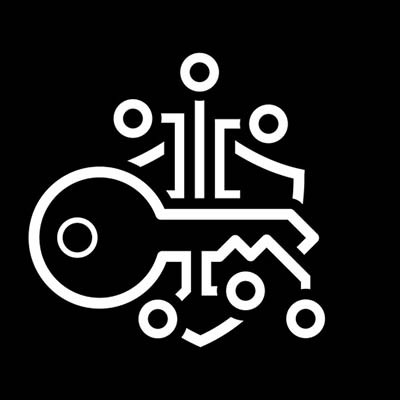Security is a necessity. Every technology professional will tell you this, but in an age where employees are taking information on the go, it’s trickier than it’s ever been before. Encryption is one of the ways that businesses are attempting to shore up their security, but this also requires having an encryption key. This week’s technology term is all about encryption, as well as how encryption keys protect your business’ data.
Defining Encryption and Encryption Keys
Encryption is the act of scrambling your organization's data so that it can’t be seen by prying eyes. Anyone who doesn’t have the encryption key will see nothing but a bunch of nonsense. Through the use of algorithms, these keys are guaranteed to be unique, meaning that there are no two patterns that are alike. Of course, depending on the type of encryption being used, there could be one or two keys needed to decrypt information.
Symmetric algorithm: Symmetric algorithms are often called secret key encryption. This uses one key to encrypt and decrypt data. Since this makes for an efficient encryption method, it can be used to encrypt large amounts of data. The bad side of this encryption is that it only uses one single encryption key, so you need to make sure that it remains in your possession at all times.
Asymmetric algorithm: Asymmetric algorithms are commonly used in public/private encryption, in which there are two keys involved. The public key--the one used to encrypt data--can be shared, whereas the other--the private key--is private, and used to decrypt the data later. Asymmetric is considered the more secure of the two options, since the private key that decrypts the data isn’t actually shared.
What Are These Keys Used For?
Encryption keys are used for a variety of objectives, but the ultimate goal is still the same: security of both the data and the encryption keys themselves. The strength of the encryption key depends on several variables, including the length of the symmetric keys and the algorithm used to create it. These keys usually have short shelf lives called a crypto-period, meaning that you should understand details about how the encryption key will be used before committing to it and expecting it to work for you indefinitely.
- Data encryption keys: These keys prevent data from being read by anyone who isn’t authorized to view it. These keys are also held onto for a bit past their crypto-period.
- Authentication keys: An authentication key is used to determine that the data encrypted has not been altered at all while it’s in transit. This is ideal for sending and receiving data so that authenticity is guaranteed.
- Digital signature keys: Digital signature keys are similar to authentication keys, but they take it a step further by applying a digital signature to the user. This means that someone who digitally signs a document can’t actually deny that they’ve done so.
- Root keys: The public key infrastructure is used for authentication and digital signatures, and the root key is the highest level of key in this infrastructure. Due to the importance of this key, it’s generally protected by a hardware security module.
- Master keys: A master key can be used to encrypt multiple other keys. This means that they need to be extremely secure with a hardware security module, and they should last for a long time, if not forever.
- Key encryption keys: These keys can transport other encryption keys. They should be long-lasting and unchanging.
Does your organization want to take full advantage of encryption? To get started, reach out to us at (410) 531-6727.




Comments